21 Benefits Of Basil For Skin And Hair, Nutrition, & Recipes
Experience the power and goodness of consuming this ancient medicinal herb daily.
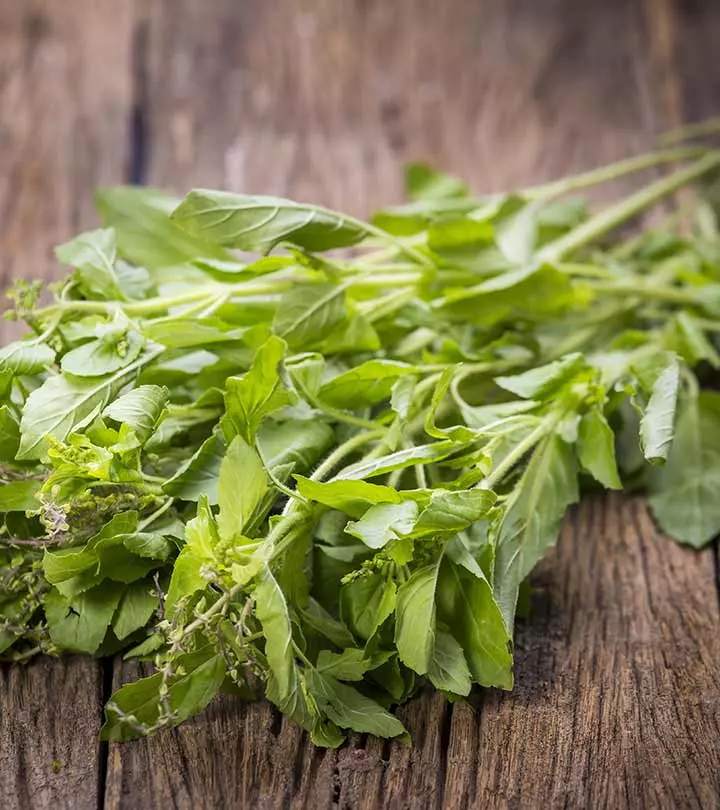
Image: Shutterstock
Several benefits of holy basil contribute to its popularity among health enthusiasts. It is mainly found in the Indian subcontinent. Holy basil, or Tulsi, has a spiritual significance in Hinduism, but it is also known as the best herbal medicine enriched with antioxidants and anti-inflammatory properties. People value it for its health benefits and uses as an essential herb in many different culinary practices around the world. Its long history and its importance across cultures make it even more popular in health and wellness. There is a wide range of ailments it helps manage, including diabetes and heart disease. This article discusses the benefits of holy basil, its nutritional profile, easy-to-follow recipes, and any potential side effects. Take a look.
 Know Your Ingredient: Holy Basil
Know Your Ingredient: Holy BasilWhat Is It?
A small herb that has a spicy aroma and mint-like taste.
What Are Its Benefits?
It may treat a sore throat, reduce stress, maintain blood sugar levels, and boost immunity.
Who Can Consume It?
Anyone can consume it except people on anti-anxiety, sedative, blood thinning, and diabetes medications.
How Often?
You can consume 3-4 leaves in water daily.
Caution
Avoid consuming holy basil if you are pregnant or breastfeeding. Excess consumption may severely reduce blood pressure and blood sugar levels.
In This Article
What Is Holy Basil?
The holy basil plant (Ocimum sanctum L.), commonly known as Tulsi or Tulasi in India, is a leafy herb belonging to the mint family. There are three variants of tulsi (in India) – Rama Tulsi, Krishna Tulsi, and Vana Tulsi – and eac
h of them is used in the same way to treat ailments. They have a similar taste as well.
The holy basil is possibly native to North Central India – and grows throughout the eastern world tropics. It has been cultivated for more than 5,000 years and is best known as a culinary herb predominantly used in Italian and Southeast Asian cuisines.
That’s a bit about the herb. But the upcoming benefits are a direct consequence of the herb’s ingredients.
The Nutrition Data
| Principle | Nutrient Value | RDA % |
| Energy | 1.2 KCal | 1% |
| Carbohydrates | 0.1g | 2% |
| Protein | 0.2g | 6% |
| Total Fat | 0.64g | 2% |
| Cholesterol | 0 mg | 0% |
| Dietary Fiber | 0.1g | 4% |
| Vitamins | ||
| Folates | 3.6 mcg | 1% |
| Niacin | 0.902 mg | 6% |
| Pantothenic Acid | 0.209 mg | 4% |
| Pyridoxine | 0.155 mg | 12% |
| Riboflavin | 0.076 mg | 6% |
| Thiamin | 0.034 mg | 2.5% |
| Vitamin A | 277 IU | 6% |
| Vitamin C | 0.9 mg | 2% |
| Vitamin E | 0.80 mg | 5% |
| Vitamin K | 21.8 mcg | 27% |
| Electrolytes | ||
| Sodium | 0.2 mg | 0% |
| Potassium | 15.5 mg | 0% |
| Minerals | ||
| Calcium | 9.3 mg | 1% |
| Copper | 385 mg | 43% |
| Iron | 0.2 mg | 1% |
| Magnesium | 3.4 mg | 1% |
| Manganese | 0.1 mg | 3 % |
| Zinc | 0.81 mg | 7% |
| Phyto-nutrients | ||
| Carotene ß | 165 mcg | |
| Crypto-xanthin ß | 2.4 mcg | |
| Lutein-zeaxanthin | 297 mcg |
Source: USDA
And now, we head to the most important part of this post – how holy basil can make your life better. Scroll down to read the benefits of basil!
How Does Basil Benefit My Health?
Holy basil is known for its anti-inflammatory and antioxidant properties. It helps combat a plethora of serious ailments like cancer, diabetes, and heart disease. It also fights inflammation. Most of the benefits of tulsi are medicinal, which means it can be used as a medicine as well.
1. Is Good For The Heart
Cardiovascular disease is one of the largest causes of mortality in the world today – with hypertension and high blood cholesterol being the main causes. Various studies have found basil to be particularly helpful in this regard.
Basil contains flavonoids, which reduce the risk of platelets forming clots on the arterial walls. This eventually prevents coronary heart disease and heart attacks.
As per an Australian study, basil can help prevent several features of the metabolic syndrome – heart disease being one of them. The herb is also credited with preventing numerous cardiac disorders (1).
Basil is also known to lower cholesterol levels, preventing heart ailments as a consequence. Ingesting basil leaves can lead to significant changes in the fat molecules – the leaves can lower bad cholesterol and increase the good cholesterol (2). helping in cholesterol management.
2. May Treat Sore Throat
Tulsi can be an excellent cure for sore throat. Studies show that the herb can work as an excellent remedy for respiratory ailments (3). You can boil the leaves in water and drink it. You can also gargle the water while it is warm.
3. Relieves Stress

In most countries, basil is considered a powerful adaptogen (stress-relief agent). The herb also possesses significant anti-inflammatory and immune-boosting properties, which can help manage stress.
Basil can also regulate the cortisol levels in the body (cortisol is known as the ‘stress hormone’). Lower cortisol levels can result in anxiety reduction and less emotional stress.
Basil also works to increase energy and enhance focus, both of which help one deal with stress. Another Australian study states that basil can address psychological stress (in addition to physical, chemical, and metabolic stress) through a powerful combination of pharmacological actions. It also protects the organs of your body against chemical stress (4).
Another Indian study attributes the anti-stress properties of basil to its antioxidants. The study, which was conducted on albino rabbits, found positive results (5).
As per a report, basil tea can promote energy and alleviate feelings of stress (6).
4. Helps Fight Cancer
Surprisingly enough, basil could be your answer to cancer. One study states that basil extracts can have radioprotective properties, which can help kill tumor cells in the body.
Basil contains eugenol, which was found to have cancer prevention properties. Other phytochemicalsi Plant chemicals that reduce the risk of certain chronic diseases and offer health benefits beyond basic nutrition. in basil (like rosmarinic acid, myretenal, luteolin, and apigenin) also have the potential to prevent various forms of cancer (7).
In another study, supplementation of basil (at a dosage of 300 mg per kilogram of bodyweight) was found to reduce the formation of cancerous enzymes significantly. Additionally, healthy enzymatic activity saw an increase post the supplementation.
In another study, basil leaf extract was found to decrease tumorigenicity and metastasis of human pancreatic cancer cells (8). It was also found to retard breast cancer development (9).
5. Regulates Blood Sugar Levels
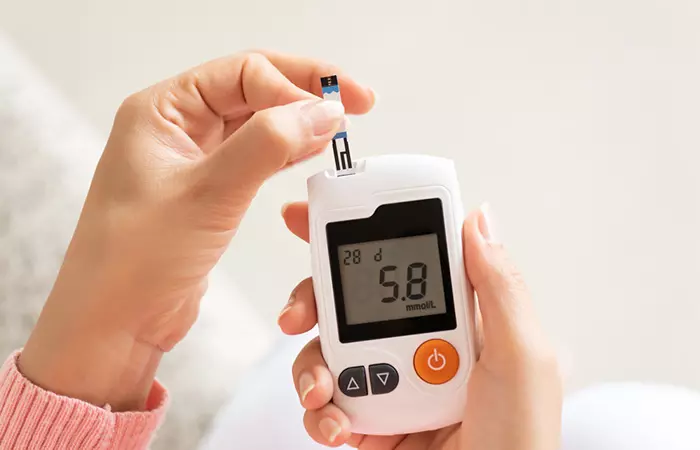
Basil might help increase insulin secretions in people with type 2 diabetes, as per research. The herb can also lower fasting and post-meal levels of blood glucose. Studies show it has anti-diabetic activity as well (10).
Another study states that basil can support blood sugar regulation (11). Patients with type 2 diabetes had reported improved blood sugar levels post ingestion of tulsi. The phytochemical compounds in tulsi – like the saponins, triterpenes, and flavonoids – are responsible for its hypoglycemic effect.
6. Protects The Liver
In a study, basil leaf extract had shown hepatoprotective properties. Albino rats (with paracetamol-induced liver damage) that were fed this extract showed signs of improvement. There was a reduction of sinusoidal congestioni A medical condition where the microscopic veins in the liver get blocked, decreasing the blood flow within the organ. and cloudy swelling within the liver of the rats (12).
The herb also enhances the activity of liver detoxification enzymes, like the cytochrome P450, which deactivates toxic chemicals and helps in their excretion.
However, a few studies state otherwise. Individuals taking basil supplements might experience some adverse liver effects. Hence, consult your doctor before taking basil (the supplements, especially) for treating your liver condition.
7. Aids Weight Loss
Some research says that basil can help lower blood glucose and blood cholesterol levels – two factors that can lead to weight gain. And as we saw, it also reduces cortisol, the stress hormone, which can also induce weight gain. You can use tulsi water to aid weight loss.
A recent study reported an improvement in the lipid profiles and BMI in obese patients following an intake of 250 mg capsules of tulsi leaf extract (13).
Do talk to your doctor before using basil for this purpose – as research is ongoing in this regard.
8. Boosts Immunity
Numerous animal studies have found basil leaf to have potent immunomodulatory effects. The extract also showed promise in improving immunity in bovine (related to cattle) models.
Basil was also found to treat a wide range of respiratory disorders – asthma being one of them. Others include bronchitisi A medical condition that causes inflammation of the lining of bronchial tubes, disrupting airflow to and from the lungs. and lung infections, which are caused primarily because of a weakened immune system. Basil liquefies the phlegm and is effective in treating allergic bronchitis, asthma, and eosinophilic lung disease (14).
As an ayurveda remedy, tulsi leaves are also used for treating fever and the associated common cold. You need to chew on a few of the leaves to get relief from the symptoms of cold and flu. Especially in the rainy season, when the risk of contracting a fever is high, you can boil some basil leaves in water and drink it as the best natural immunity-booster you can get. And if you are suffering from severe fever, a decoction of basil leaves and a pinch of powdered cardamom can help. With time you might even see visible results on your respiratory health.
Basil leaf extract can also be used to heal wounds quickly (in addition to cuts and burns). It can especially heal wounds post surgery and also protect them from any potential infection.
9. Protects Against Inflammation
Basil leaves help fight inflammation and can even help relieve joint pains caused by inflammation. Basil achieves this, thanks to eucalyptol, one of its main ingredients. Eucalyptol reduces inflammation and the associated pain by enhancing blood circulation around the wounded area (15). Basil also works as an analgesic and relieves pain.
10. Protects Blood Vessels
As it possesses antioxidant and anti-inflammatory properties, basil can help the muscles controlling blood vessel function to contract and relax. It also helps remove the plaque in blood vessels, protecting them from damage (16). However, more research is required in this regard.
11. Improves Oral Health
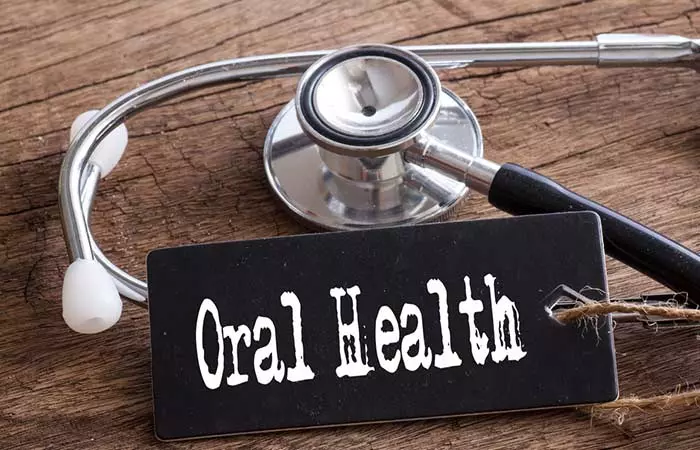
According to an Indian study, basil serves as an excellent mouthwash to control oral plaque. This is because the extract has a very high antibacterial activity (17).
According to a report released by the Centres for Disease Control and Prevention, 1 out of 4 adults in the United States aged between 20 to 64 have dental cavities. Severe tooth loss and severe gum diseases are two of the other most prevalent oral conditions. Drinking fluoridated water and consuming antibacterial foods can improve such oral conditions.
Another study focuses on the antimicrobial activity of basil. The herb was found to offer preventive properties to patients with periodontal diseasei A serious oral infection that causes inflammation of the gums due to poor brushing and flossing habits that allow plaque build-up. . The upside of the herb is that it doesn’t cause any undesirable effects – which otherwise happens with the use of OTC antibacterial agents (18).
12. Prevents Eye Disorders
We know how vulnerable our eyes are. They are susceptible to numerous fungal, viral, and bacterial infections. Basil can help fight these infections, one of them being conjunctivitisi A condition characterized by the inflammation of the conjunctiva due to bacterial or viral infections. . And the soothing and anti-inflammatory properties of basil protect the eye from free radicals and environmental damage.
Basil leaves also help prevent serious eye ailments like glaucomai A chronic and progressive eye condition that damages the optic nerve and causes visual field loss or blindness. and macular degenerationi An eye disorder common in people over 50 where the inner layers of the macula break down and result in poor central vision. . They can play an important role in treating cataracts and other vision issues.
13. Improves Abdominal Health
Basil works great for abdominal health. These include stomach ache, flatulence, acidity, and constipation. It was also found to act against stomach ulcers (19).
For treating stomach ache, all you need are the juice of basil leaves (10 mL) and 20 mL of lime juice and ginger juice (as required). Mix well and drink it up.
Basil seeds cooked in water can give relief from hyperacidity.
14. Treats Headache
Research highlights the traditional use of basil to treat headache. Holy basil can be taken in numerous forms – either as a juice or dried powder or as a herbal tea mixed with other herbs or honey to enhance its beneficial properties (20).
What Are The Benefits For My Skin?
Holy basil has antimicrobial properties. It helps fight acne and other skin infections. Plus, it is a key player in ayurvedic beauty tips for glowing skin, helping you achieve that clear, radiant complexion you have been dreaming of.
15. Prevents Acne
Basil leaves purify your blood by removing toxins. The antibacterial and antifungal agents in the leaves help you achieve this.
Apply the paste made from basil leaves (along with sandalwood paste or rose water) on your face. Leave it on for about 20 minutes, post which you can wash your face with cold water. Using tulsi tea for this purpose can also help treat acne and improve skin health. You can consume tulsi tea as well.
This remedy can also help remove blackheads, acne scars and marks, and pimples. In fact, one Thailand study tells us how holy basil, in its suitable formulation, can help treat acne (21).
16. Relieves Skin Infections
Basil also possesses antibiotic properties, which play a role in treating infections. The leaves restrict the growth of bacteria like B. anthracis and E. coli that cause skin infections.
A simple concoction prepared by grinding and boiling 250 grams of basil leaves along with sesame oil in an equal quantity can help treat infections like itching.
Another simple mixture of ground basil leaves and an equal amount of lemon juice can help treat ringworm.
Tulsi also has antimicrobial and antifungal properties, which help prevent numerous other skin infections (22). There are several Ayurvedic medicines as well that contain tulsi and have been effective against ringworm.
17. Treats Vitiligo And Eczema
Regular intake of basil leaves can improve the symptoms of vitiligoi A skin disorder caused due to lack of melanin that results in loss of skin color in patches on any part of the body. . It can have similar effects on eczema as well. Tulsi-infused water baths are suggested as a potential treatment for skin issues like eczema (23).
But since research is ongoing, we recommend you consult your doctor before using basil for this purpose as the concentration of the herb matters.
What About The Benefits For Hair?
Holy basil prevents hair loss by strengthening the hair follicles. It also treats dandruff and itching and prevents premature graying of hair.
18. Prevents Hair Loss
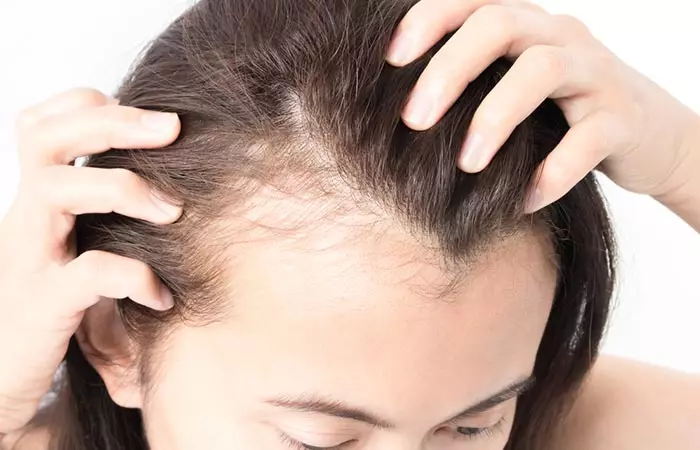
Making a paste of basil leaves and mixing it with your hair oil can work wonders for your hair. Apply this oil to your scalp and leave it on for about 30 minutes and then shampoo as usual. This mixture rejuvenates your hair follicles, keeps your scalp cool, and promotes circulation to your scalp.
Tulsi is used as an effective remedy for hair loss. It is considered an important ingredient in herbal hair loss treatment. The herb works by strengthening the hair roots, thereby curbing hair fall (24).
19. Treats Dandruff

Simply add a small amount of basil oil to your regular hair oil and massage it thoroughly into your scalp. Basil improves blood circulation and reduces dandruff and the scalp itchiness that accompanies it. This remedy also treats dry scalp.
Tulsi has been found to be effective in controlling four types of fungal strains that may cause dandruff. This effect of tulsi offers other benefits like improved hair smoothness and hair shine, along with ease of combing and reduced frizz (25).
20. Prevents Premature Graying Of Hair
All you need to do is soak dried holy basil powder (you can prepare it at home by grinding a few basil leaves) along with amla powder in water overnight. The next morning, wash your hair with the mixture (after straining it).
This remedy helps prevent premature graying of hair and treat hair fall. This is one reason tulsi is considered an essential ingredient in herbal hair treatments (26).
21. Is A Good Source Of Vitamin K
The vitamin K in holy basil is an essential nutrient for blood clotting as it reduces the risk of excessive bleeding (27). It also boosts bone density and strength and overall skeletal health. Insufficient vitamin K can weaken bones and increase the risk of osteoporosis and fractures. Adequate vitamin K intake through a balanced diet promotes bone health, especially as we age (28). Hence, incorporate holy basil into your daily diet and experience this benefit.
Thus far, you have read various benefits of holy basil, but how do you use this herb in your cooking? Let’s find out!
How To Use Basil In Cooking?
Here are a few tips to use basil in cooking:
- You can eat a few leaves on an empty stomach.
- You can mix the leaves with a concoction of ginger and honey and drink the tea.
- You can also add chopped leaves to your favorite dishes.
- If you want the most intense flavor, add basil at the end of the cooking process.
- If you want the full flavor, never use dried basil. Keep this in mind when substituting dried basil for fresh. Also, while substituting, triple the amount of dried basil. One half-ounce of dried basil leaves equals one cup of chopped fresh basil.
Now that you know how to use the herb in cooking, how about trying a popular recipe?
Any Recipes?
Some of the popular basil recipes include basil pesto, basil orange salmon, and the holy basil tea. All taste wonderfully delicious and are super-healthy.
Holy Basil Tea
What You Need
- 1 sprig of basil
- 5 drops of honey
- ½ teaspoon of ginger
- 1 dash of lemon juice
- 3 cups of water
- ¼ teaspoon of green cardamom
Directions
- Put a large vessel on high flame, and add the three cups of water to it.
- Add the basil leaves (shredded), chopped ginger, and cardamom powder.
- Let them boil for 10 minutes.
- Strain and serve with a dash of honey and lemon juice.
You can take this tea three times every day.
Nicole, a holistic lifestyle blogger, shares how holy basil tea benefits her. She writes, “I have my own issues with anxiety, and I tend to get overwhelmed easily during stressful times…It (holy basil) protects your cells from oxidative stress. It lifts the mood, and helps to energize you in a gentle way – never making you hyper or jittery. In short, for me, it’s liquid sunshine. I feel lighter, calmer, and happier in minutes (i).” She concludes with how it has never failed in relieving her stress and anxiety in overwhelming situations.
Another blogger, Cristina, includes holy basil tea in the list of teas she loves for their wondrous benefits. She writes, “During the long winter months, I drink at least a couple of cups (of holy basil tea) a day. It helps with the malaise that long winters create when we just need to feel the warmth of the sun (ii).”
Is there any particular dosage for consuming holy basil? Let’s find out!
How To Consume Holy Basil Leaves
You can take 4 leaves (6 to 12 grams) daily, in water as a decoction. If you are taking a supplement, take 1 capsule (250 to 500 mg) daily, or better, as recommended by your doctor or therapist.
If you are taking tulsi extract (also called tulsi ark, which has similar benefits), you can go for 3 grams of it.
If you are new to holy basil, it is a good idea to start with a small amount and gradually increase it to give your body time to adjust. Drinking holy basil tea is a popular way to avail of its benefits. It is soothing and many people who like herbs enjoy drinking it.
Here are some interesting facts about basil.
Any Super Facts?
- Basil is versatile. It can be used fresh or in its dry form. It can be used in both sweet and savory dishes.
- Basil contains certain chemicals that insects, especially mosquitoes, don’t like (but they don’t affect humans, by the way). So, if you want to keep mosquitoes away, keep basil nearby.
- Basil is worshiped in different religions. Apart from being considered holy by the Hindus, basil is also used to prepare holy water in certain orthodox churches in some countries like Bulgaria, Serbia, and Macedonia.
- Basil is part of the mint family – some other herbs in the family are rosemary, lavender, and oregano.
 Quick Tip
Quick TipGreat! So, how do you grow this plant? Are there any rules you need to follow? Scroll down to find out.
How To Grow Basil Leaves
Planting
- To plant outside, wait until the soil is at a temperature of at least 70o F. The plant won’t grow without heat.
- Basil needs to be in an area that is exposed to 6 to 8 hours of sunlight daily. The soil must be moist and well-drained.
- Plant the seeds about ¼-inch deep and about 10 inches apart.
- If you are planning to cook with these plants, plant the seeds in clean soil (don’t use fertilizers that leave harmful residues).
Caring
- Basil plants like moisture. If you live in a hot area, use mulch around them.
- Every time a branch has six to eight leaves, prune the branches to the first set of leaves. Repeat this.
- After 6 weeks, pinch off the center shoot. This prevents early flowering. You can cut the flowers off if they do happen to grow.
- In case the weather is going to be cold, ensure you harvest your basil beforehand.
Harvesting
- Start picking the leaves as soon as they are 6 to 8 inches tall.
- Ensure to pick the leaves regularly to encourage growth during summers.
- Even if you don’t need the leaves, just pick them to let the plant grow. You can freeze the leaves.
- The best method to store basil is freezing.
 Fun Fact
Fun FactIn case you can’t grow basil, you can buy it. Keep these points in mind.
How To Buy And Store Basil
Buying
Look for fresh and vibrant green leaves. They must have no dark spots or any signs of decay.
Storing
- You can layer fresh basil leaves in damp paper towels inside a plastic bag and refrigerate for up to 4 days.
- If it is basil with stalks attached, place in a glass of water and cover with a plastic bag (it must be secured to the glass). Store them in the refrigerator. Change the water daily and use them within a week.
- Don’t wash the leaves until you are ready to use them.
You can buy basil leaves from your nearest supermarket. Or you can buy tulsi syrup as well. It has the same benefit as the leaves – and some people find it easier to consume. You can also buy tulsi tablets from the nearest drugstore (after consulting your doctor, obviously). But before you do so, you also need to know something else…
What Are The Side Effects?
Wondering if there is a catch to using Tulsi? Well, like most good things, it comes with its own set of side effects. Let us dive into the nitty-gritty of the side effects of Tulsi so you can enjoy its benefits without any surprises.
- Might Cause Complications In Pregnant And Breastfeeding Women
Though safe in normal amounts, basil can cause issues in pregnant and breastfeeding women if taken in large amounts. To stay safe, avoid use. Tulsi may have anti-fertility effects, which is another reason pregnant women must stay away from the herb (26).
- Bleeding Disorders
Basil extracts might slow blood clotting and increase bleeding. Hence, avoid use if you are susceptible to bleeding (29). Also, stop use at least two weeks before a scheduled surgery.
- Low Blood Pressure
Basil contains high levels of potassium and can lower blood pressure (30). This can be an issue for people with low blood pressure or who are taking medications to treat high blood pressure – as basil can lower blood pressure way too much.
Infographic: Holy Basil Home Remedies
Holy basil is packed with many nutrients and beneficial compounds. It enhances the taste of your food and improves your health. This herb can help address various health concerns.
Get to know holy basil and how it can benefit you by revitalizing your skin and promoting hair growth. Check the infographic below. Illustration: StyleCraze Design Team
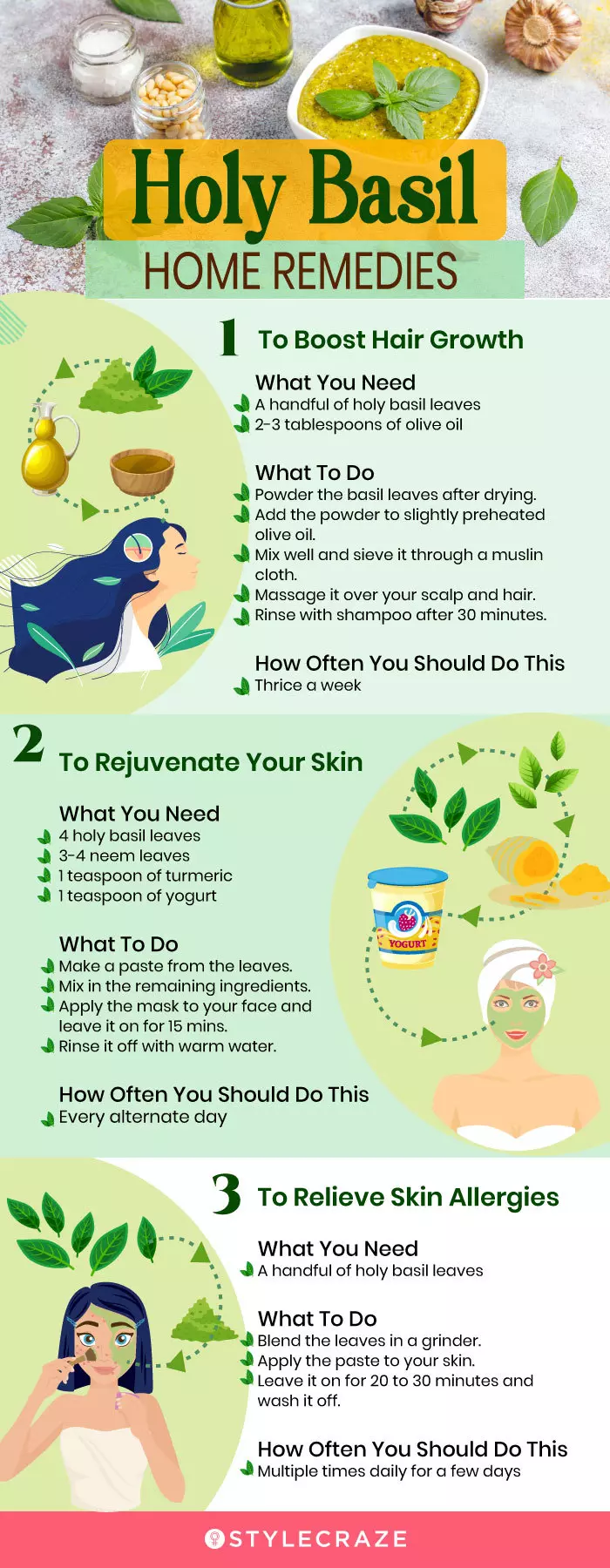
Conclusion
Holy basil – its benefits are as holy as its name. That is why you must include this in your routine. You sure are going to do that, aren’t you?
Do tell us how this post has helped you. Your feedback will help us serve you better.
Holy basil benefits you in multiple ways. These benefits can be attributed to its health-promoting nutrients in it. Holy basil improves cardiovascular, liver, oral, and abdominal health. It also reduces cancer risk and relieves stress and sore throat. Its benefits for skin and hair are also known. You can add it as a seasoning to your dishes or chew some leaves on an empty stomach to reap the benefits. However, pregnant women and those with bleeding disorders must practice caution.
Frequently Asked Questions
Is chewing basil leaves good for your health?
Yes.
What is panch basil?
It is one form of basil that is known to treat colds and coughs.
Why are Hindus told not to use basil on Sundays?
As per the religion, tulsi plant fasts on Sundays and hence, must not be used.
What are the benefits of drinking basil water?
It is nothing but basil tea. And the benefits are whatever we spoke of in this post.
What is the proper way to pick basil leaves off of a basil plant to ensure it will continue to grow?
The best way to pick leaves off the plant is by pinching off a piece of the stem.
What is a good substitute for Holy basil?
Mediterranean basil – as it is the easiest to find and versatile as well.
Does holy basil make you sleepy?
Yes, holy basil essential oil has a moderate sedative effect that may help relax your mind and body and work as a gentle sleeping aid (31).
Is basil good for kidneys?
Research suggests that basil extract may exert a protective effect on the kidneys due to its high antioxidant content (32).
Does holy basil increase testosterone?
According to an animal study, holy basil increases serum testosterone levels while decreasing sperm count, LH (luteinizing hormone), and FSH (follicle stimulating hormone) (33).
Does holy basil affect the thyroid?
Holy basil is considered to be beneficial for the thyroid as it helps regulate thyroid hormones and can be used in conjunction with other treatments to improve thyroid function (34), (35).
Key Takeaways
- Basil has anti-inflammatory and antioxidant properties that may treat a variety of illnesses.
- It is a herb commonly used in cooking, primarily in Southeast Asian and Italian cuisines.
- Basil has flavonoids that lower the possibility of platelets forming clots on arterial walls, preventing heart attacks and coronary artery disease.
- It helps lower cholesterol, preventing heart diseases. It improves cortisol levels, which may soothe anxiety and emotional stress.
- The leaf extracts to speed up the healing process of wounds and in preventing infection.
Illustration: Benefits Of Basil For Skin And Hair Nutrition & Recipes
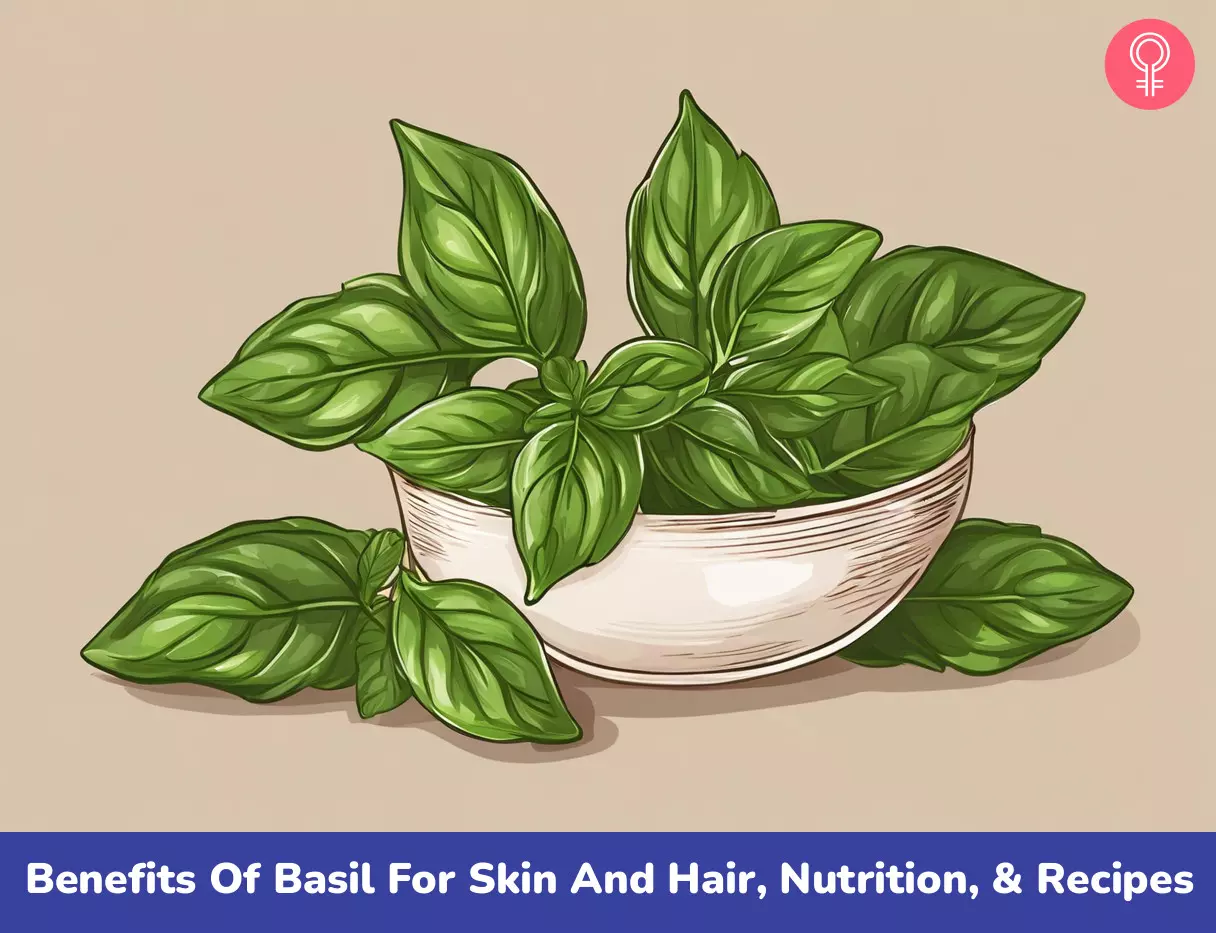
Image: Stable Diffusion/StyleCraze Design Team
Personal Experience: Source
StyleCraze's articles are interwoven with authentic personal narratives that provide depth and resonance to our content. Below are the sources of the personal accounts referenced in this article.
i. Why I Drink Herbal Teas Every Day – and the Benefits of Holy Basil (Tulsi)https://theholistichousewife285267471.wordpress.com/2019/05/23/why-i-drink-herbal-teas/
ii. The Wonders of Tea
https://seedstoroots.com/2014/10/08/the-wonders-of-tea/
References
Articles on StyleCraze are backed by verified information from peer-reviewed and academic research papers, reputed organizations, research institutions, and medical associations to ensure accuracy and relevance. Read our editorial policy to learn more.
- “Tulsi – Ocimum sanctum: A herb for all reasons”. School of Health Sciences, RMIT University, Victoria, Australia. 2014 December.
- “Changes in the blood lipid profile after…”. S.N. Medical College, Agra, India. 1994 October.
- “A comparative study to assess the effect of steam inhalation…”. International Journal of Medicine Research.
- “Tulsi – Ocimum sanctum: A herb for all reasons”. School of Health Sciences, RMIT University, Victoria, Australia. 2014 December.
- “Antistressor activity of Ocimum sanctum (Tulsi)…”. Pt. B. D. Sharma Post Graduate Institute of Medical Sciences, Rohtak, Haryana, India. 2007 August.
- “Pre-Formulated Teas and Extracts”. Maryland University of Integrative Health.
- “Ocimum sanctum L (Holy Basil or Tulsi) and its phytochemicals in the prevention and treatment of cancer”. Research and Development, Father Muller Medical College, Karnataka, India. 2013.
- “Holy Basil Leaf Extract Decreases Tumorigenicity and Metastasis of Aggressive Human Pancreatic Cancer…”. University of Nebraska Medical Center, Omaha, USA. 2014 August.
- “Ocimum gratissimum retards breast cancer growth and progression…”.Wayne State University, Detroit, USA. 2013 May.
- “Tulsi – Ocimum sanctum”. RMIT University, Victoria, Australia. 2014 December.
- “The clinical efficacy and safety of tulsi…”. RMIT University, Melbourne, Australia. 2017 March.
- “Hepatoprotective activity of Ocimum sanctum alcoholic leaf extract against…”. Mahatma Gandhi Medical College and Research Institute, Pondicherry, India. 2011 January.
- “Effect of tulsi supplementation on metabolic…”. Indian Journal of Clinical Biochemistry.
- “Antioxidant Activity of The Ancient Herb, Holy Basil…”. Nagarjuna Herbal Concentrates Ltd, Thodupuzha, Kerala, India. 2016 February.
- “Eucalyptol alleviates inflammation…” British Journal of Pharmacology, 2020 May.
- “Hypolipidaemic activity of aqueous Ocimum…”. University Mohamed I, Morocco. 2006 December.
- “Evaluation of holy basil mouthwash as an…”. S.D.M. College of Dental Sciences and Hospital, Dharwad, Karnataka, India. 2014 December.
- “Anti-microbial Activity of Tulsi…”. Mahatma Gandhi Dental College and Hospital, Jaipur, Rajasthan, India. 2016 March.
- “Ocimum sanctum Linn. A reservoir plant for therapeutic applications: An overview”. SOA University, Bhubaneswar, Orissa, India. 2010 June.
- “Antimicrobial Activity of Tulsi…”. Royal Melbourne Institute of Technology University, Melbourne, VIC, Australia. 2016 May.
- “Evaluation of in vitro antimicrobial activity of Thai basil oils…”. Naresuan University, Thailand. 2006 April.
- “A clinical observational study to evaluate…”. Unique Journal of Ayurvedic and Herbal Medicines.
- “The Cultural and Commercial Value of …”. Plants (Basel)
- “Kesharaja: Hair vitalizing herbs”. International Journal of PharmTech Research.
- “Development of antidandruff shampoo from…”. MDPI.
- “Effect of tulsi on sperm count and reproductive…”. Pt. B. D. Sharma University of Health Sciences, Haryana, India. 2010 October.
- “Vitamin K”. StatPearls.
- “Vitamin K and Bone Health: A …”. Journal of osteoporosis.
- “Effect of Ocimum sanctum fixed oil…”. University of Delhi, New Delhi, India.
- “Trace element studies on…”. Sri Sathya Sai University, Prasanthinilayam, India.
- “Evaluation of anxiolytic and sedative effect of essential oil and hydroalcoholic extract…”. Isfahan University of Medical Sciences, Isfahan, I.R. Iran. 2015 November.
- “Physiological and histopathological study on the influence of Ocimum basilicum leaves extract…”.King Abdulaziz University, Jeddah, Saudi Arabia. 2020 July.
- “Effect of tulsi (Ocimum Sanctum Linn.) on sperm count and reproductive…”. University of Health Sciences, Rohtak, Haryana, India. 2010 October.
- “OCIMUM SANCTUMLEAF EXTRACT IN THE REGULATION OF THYROID…”.School of Life Sciences, Vigyan Bhawan, Khandwa Road, Indore, India. 1998 August.
- “Effect of Ocimum Sanctum on Serum Concentration of Thyroid Hormones…”.BDS PGIMS Rohtak. 2016 December.
Read full bio of Dr. Aparna K
Read full bio of Ravi Teja Tadimalla
Read full bio of Arshiya Syeda
Read full bio of Aparna Mallampalli





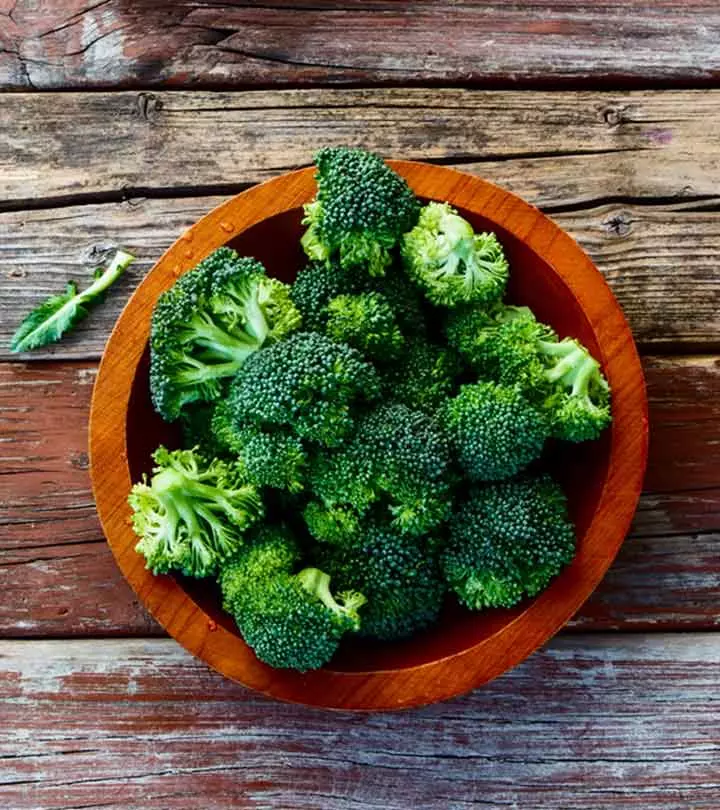
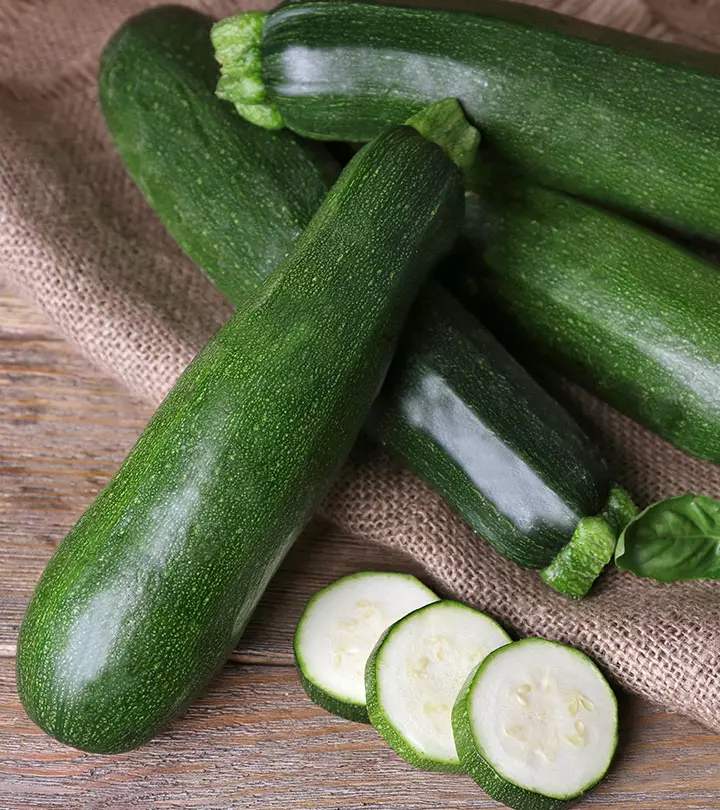
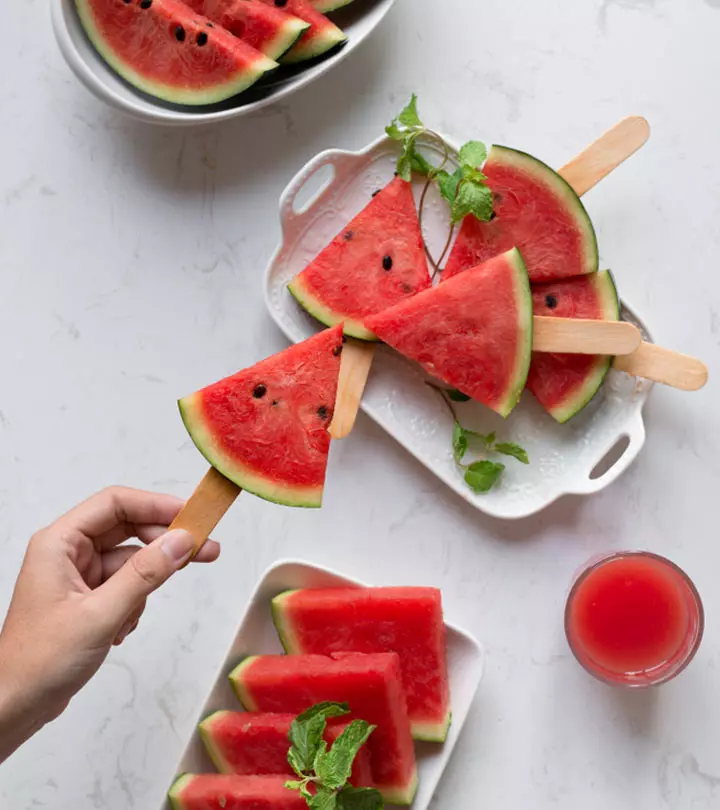
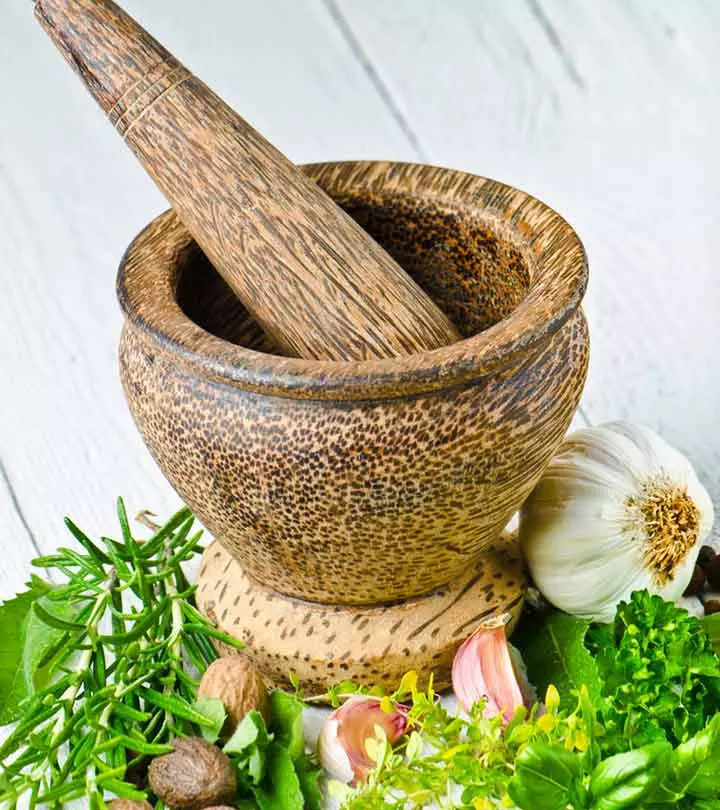

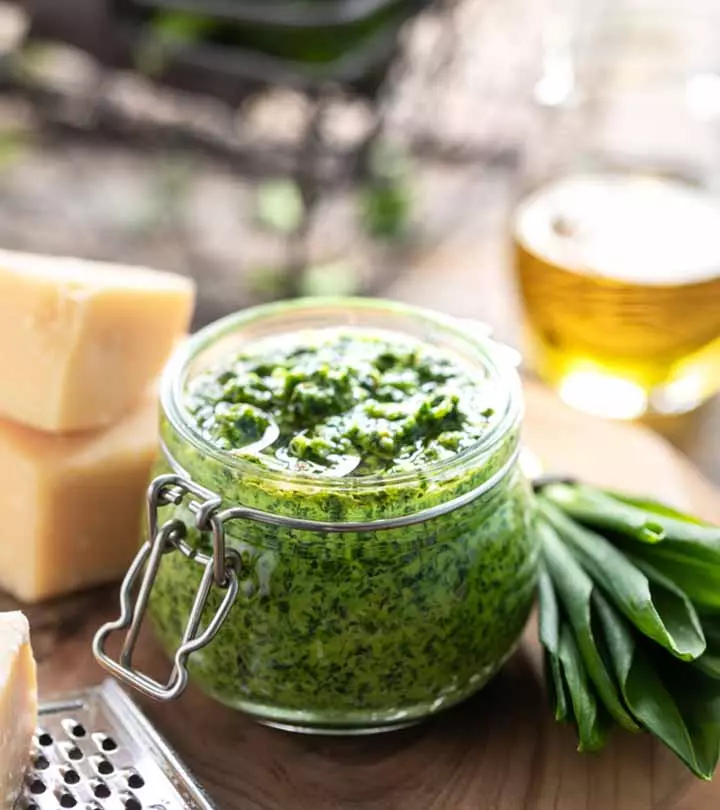



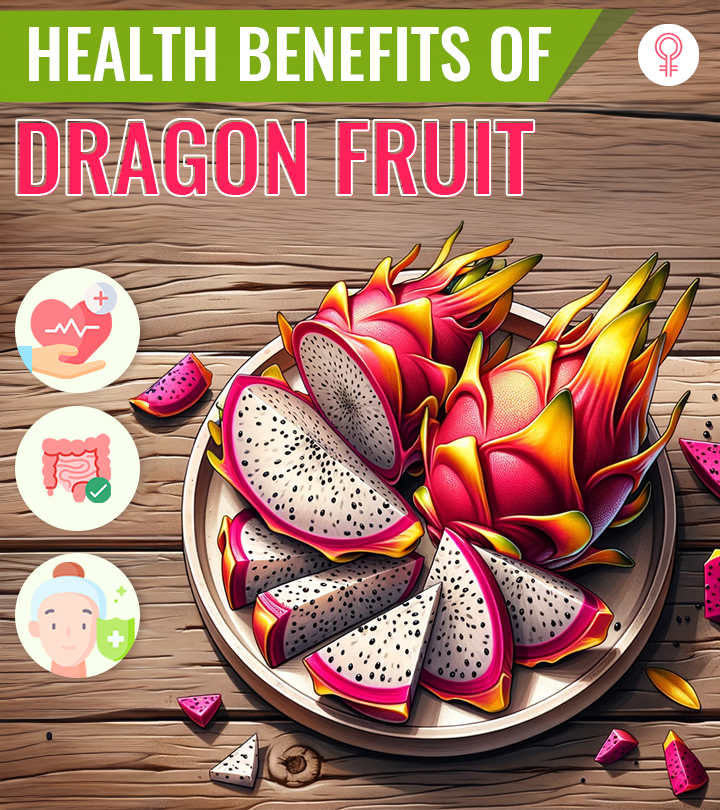
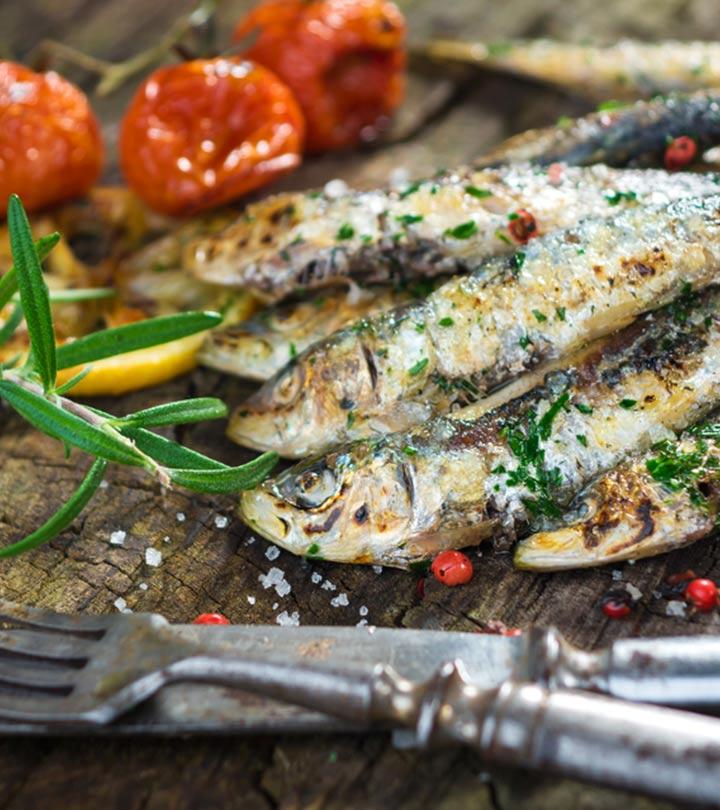
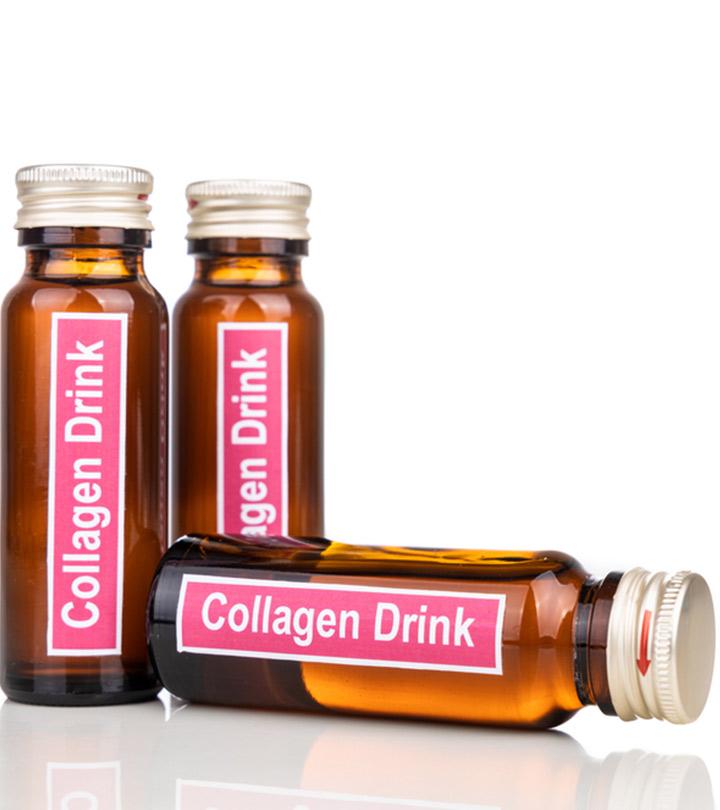
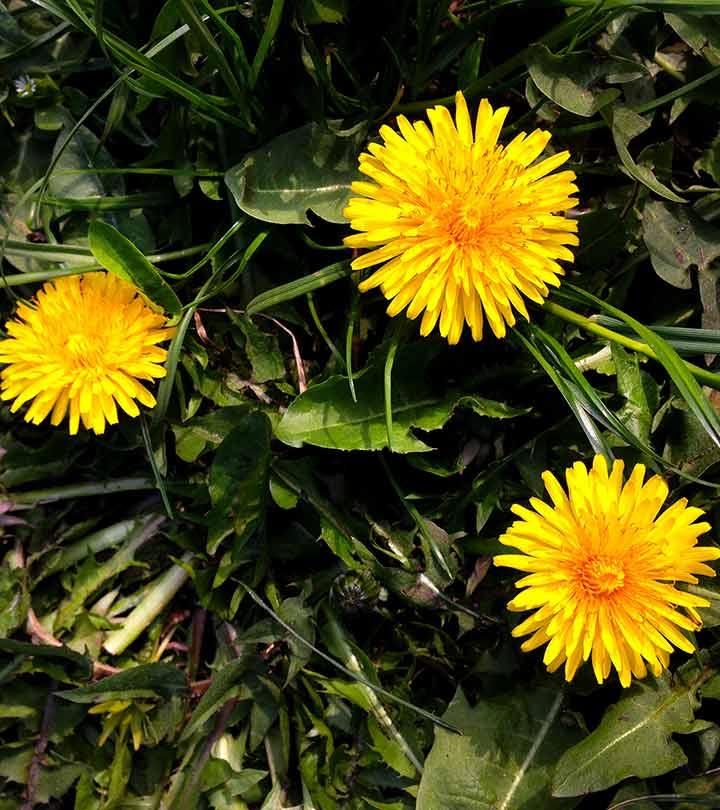
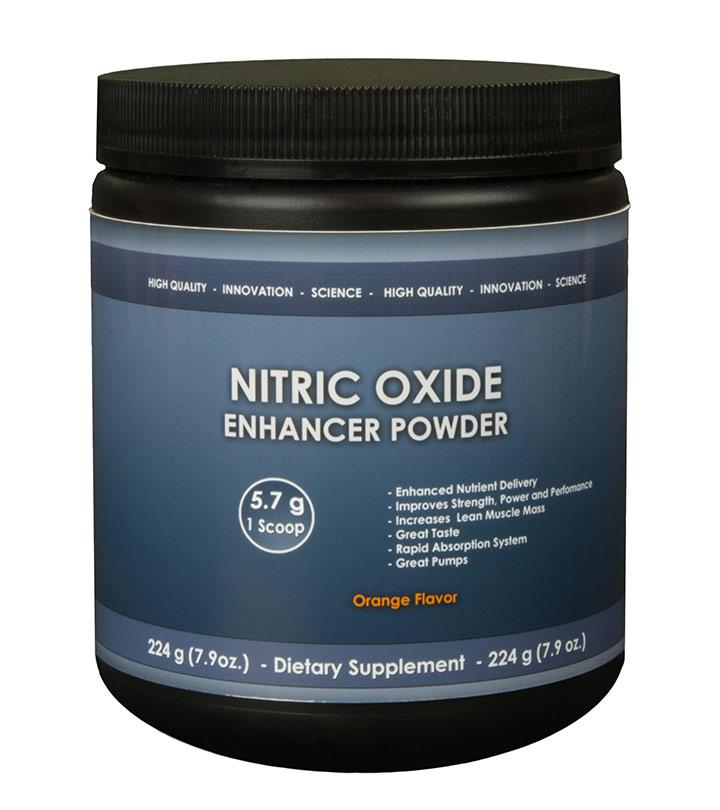
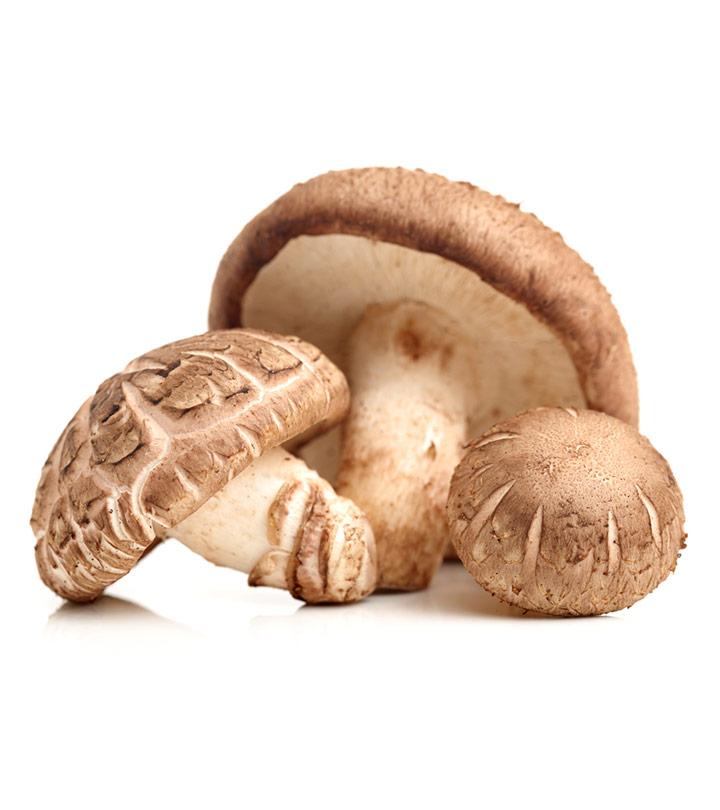
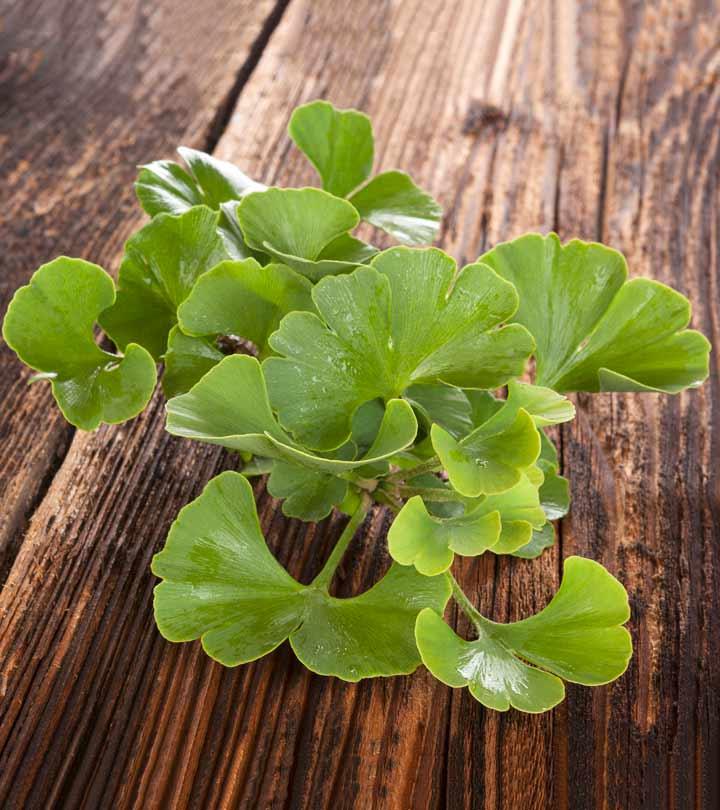

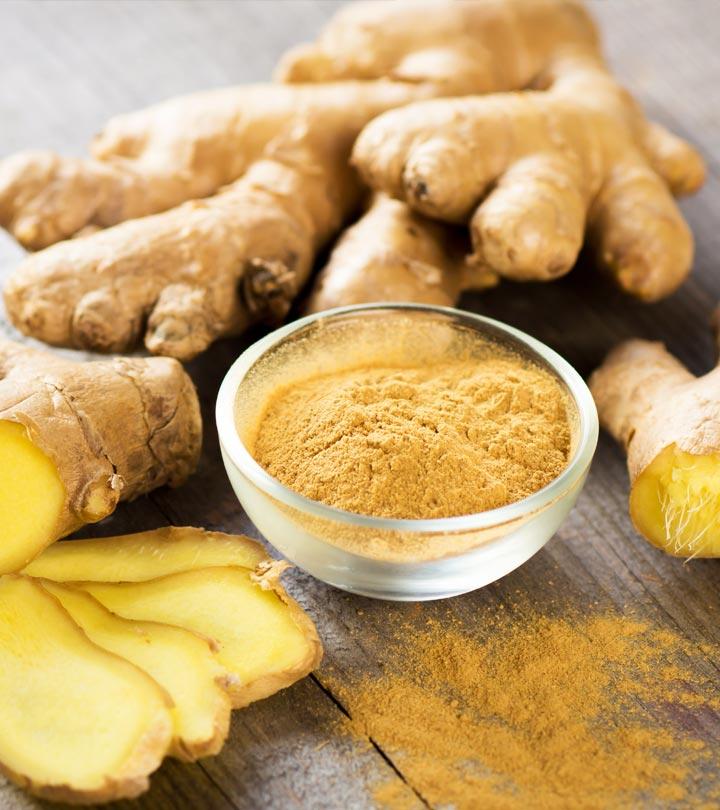
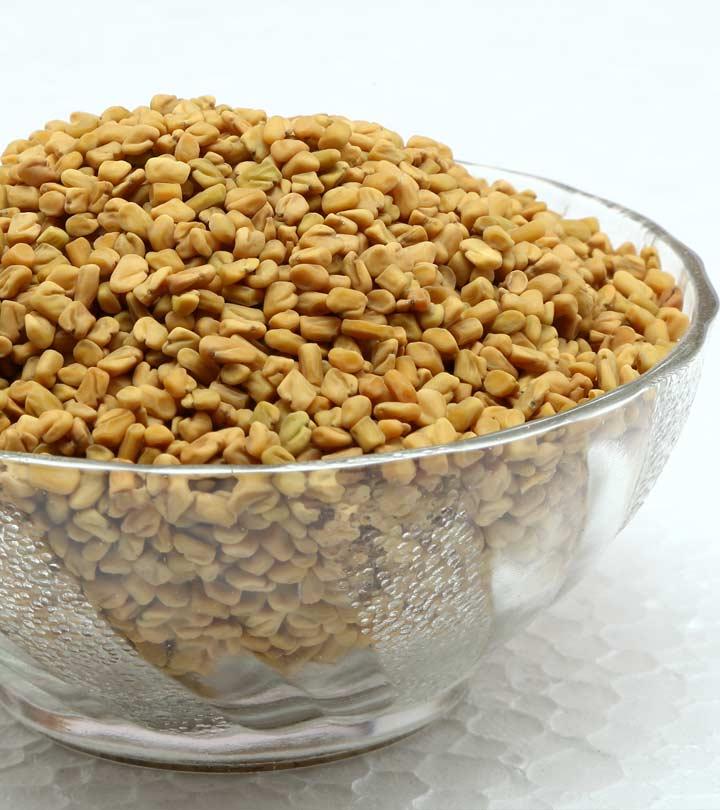


Community Experiences
Join the conversation and become a part of our empowering community! Share your stories, experiences, and insights to connect with other beauty, lifestyle, and health enthusiasts.